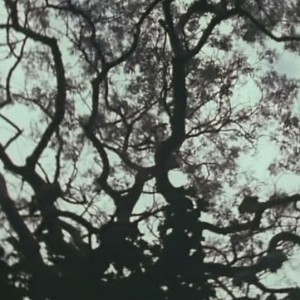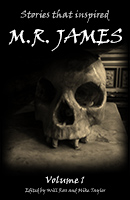 In this post-Halloween spook-tacular of an episode, your hosts Mike and Will attempt to answer the following thorny questions:
In this post-Halloween spook-tacular of an episode, your hosts Mike and Will attempt to answer the following thorny questions:
- Is it unlucky to sleep in a room near an ash tree?
- Is Mrs Mothersole a MILF?
- Are you down with the Castringham Sickness?
If you answered ‘yes’ to one or more of the above then pull your deep leather armchair closer to the roaring fire, refill your glass of port and prepare to join Mike and Will as they delve into dark and devilish goings on in 17th & 18th century rural Suffolk in M.R. James’s The Ash-tree!
Big thanks to Katy Ross (@dreamkitten) who was our reader for this episode.
Links
- Great Livermere on GoogleMaps
M.R. James grew up in Great Livermere and it is widely believed to be the inspiration for Castringham, the setting of ‘The Ash-tree’. - Photo of Livermere Hall
Sadly the hall on which Castringham Hall was based was demolished in 1923 but a photo of it can be found at the Lost Heritage website. Note the extensive growth of foliage visible around the sides of the hall! - ‘The Ash-tree’ story notes at Ghosts & Scholars
Exemplary M.R. James resource Ghosts & Scholars features an excellent set of story notes on The Ash-tree penned by M.R. James expert Rosemary Pardoe. - James & Great Livermere at SuffolkCoast.co.uk
An interesting article about James’s connection to Great Livermere and stories it inspired. - Sortes Sanctorum & Sortes Biblicae at Wikipedia
The history and origins of using the Bible for divination. - Spiders in ‘The Ash Tree’ by Jacqueline Simpson
An article from the Ghosts & Scholars Newsletter no. 5 on James’s use of spiders in The Ash-tree, with particular reference to a peculiar mini-plague of spiders that hit Bury St. Edmond’s in 1660! - Bible Quotes from The Ash-tree @ Bible.cc
‘Cut it down’ – Luke 13:9
‘It shall never be inhabited’ – Isaiah 13:20
‘Her young ones also suck up blood’ – Job 29:30
‘Thou shall seek me in the morning and I shall not be’ – Job 7:21
Cut from this episode:
- A larger than usual amount of bad language.
- Will’s un-PC Sir Matthew Fell/ Tupac Shakur joke that would have killed in 1997.
- Mrs Bunch, Mrs Mothersole, Ann Clark: Snog, Marry, Avoid?
Podcast: Play in new window | Download
Subscribe: RSS
Tags: Ash Tree, Castringham, Fear, Ghost Story, Great Livermere, Hanging, Horror, M.R. James, M.R. James Podcast, Montague Rhodes James, Mrs Mothersole, podcast, Sortes Sanctorum, Terror, The Ash-tree, Witchcraft








Great podcast!!
Very, very nerdy of me but it was Vincent Price in the witchfinder general.
Doh, can’t believe I got that mixed up! I event watched the trailer on youtube shortly before recording to remind myself how good it was!
Maybe you confused it with THE BLOODY JUDGE (1970), starring Christopher Lee as hanging Judge Jeffries, persecuting women accused of witchcraft.
j
j
Wonderful podcast chaps ! Keep the stories coming….
Awesome podcast. You guys are really fun to listen to.
Keep ’em coming. BTW, I’d so buy a shirt with that “you shall
seek me in the morning” quote. Design one and put it on Cafe Press.
And how about “Quis est iste qui venit?”
Great episode guys, well done. I love the twist in this one – after the (seemingly unjustified) conviction of Mothersole the whole tale then goes on to justify her treatment. Given the later spider-related events we might assume she really was a nasty piece of work, rather than a lovable Pagan herbalist.
I agree, Stephen!
Despite the host’s attempts to portray her as the “wronged woman” that is so preferred by the PC crowd today, good old MRJ shows that she was exactly what she was accused of being – a wicked witch! Bwah-haha!
I wonder how her dead remains came to be in the old tree trunk with all her “children”?
Hey, guys! Great podcast – I love this spooky story so!
One comment in response to your remark about Christian hypocrisy in desecrating a grave by digging up the remains – it wouldn’t desecration to move the remains to a different spot, as long as the remains weren’t abused/disrespected in any way. But in the case of this grave, they found no remains to move. So there really isn’t much desecration that can be done to an empty coffin.
As far as Mothersole’s being a force for good or evil, it really depends on whose idea of “good” or “evil” you accept. She’s no more a nasty piece of work than the Old Testament-y agents of vengeance in James’s other stories, some of which at least pretend to adhere to the Christian tradition. In this case, regardless of her position on the black-to-white scale of orthodox Christian morality, she’s clearly been wronged.
I even thought there was a faint suggestion that her attendance to the ash tree may have been the only thing that kept the beasties in check during her lifetime. Her dying words may have been less a curse than a baleful prediction.
Burning in the UK was restricted to treason (including petty treason, killing your husband) and heresy. Witchcraft wasn’t heresy as such and so they were hanged (if they hadn’t died in appalling prison conditions beforehand).
Also, some similarities between Brown Jenkins from Dreams in the Witchhouse and the spiders.
Yes, Protestant countries tended to hang, rather than burn, witches. It was also common for witches (and other particularly evil people) to have a stake driven through their heart and be buried at the cross-roads (James hints at this in his “Two Students” plot). This was to stop evil spirits taking possessing the corpses. The stake has become associated with vampires, who were once depicted as exactly the kind of evil spirits animating decaying corpses.
There is a distinct influence of “The Ash Tree” on “The Dreams in the Witch-House” with its ancient witch and her malign familiars, as well as shunned rooms.
I heard in my colonial America history class in college that in the US witch trials, they were pressed to death.
My understanding is that pressing was considered merciful because it allowed the victim time to repent. I believe some pressings were stopped when the victim called out that they repented of their sins, embraced Christ, and gave the names of the people who had forced them into sin. Essentially, it gave a get-out clause that relied on shifting blame onto another person. With hanging, once you’d taken that drop, there was no going back.
Weird idea of mercy, but there you go.
Most were actually hanged (US citzen here). Some were pressed to death but that wasn’t the execution, rather a way of getting them to admit they were witches, or as Karen below said, to get them to repent. But most were hanged. If they died of the pressing, or for that matter of ducking, they were considered guilty.
I enjoy the podcasts! A quick note on the north side of a church being the unconsecrated ground.
In ancient/medieval christian tradion, the north was associated with evil. There are a variety of reasons but a few references will suffice: The hordes of Gog and Magog are supposed to come from the north. See Ezekiel 38-39: “You will come from your place in the far north, you and many nations with you, all of them riding on horses, a great horde, a mighty army.”
Additionally, the orientation of ancient and medieval churches was significant. They were designed to “face” east, the direction of the rising sun. This puts the north on the left hand side – the left was also traditionally considered the “evil” side.
There are many references you could find related to church orientation, but this is a short one:
http://www.heritageinspired.org.uk/pdf/newsletter_7.pdf
There were some churches where the skins of flayed Norsemen were nailed to the north door.
I’m sure Jesus would’ve been thrilled. Or not.
Thanks for this! I always wondered where the tradition came from!
Thanks for the church facts. Will is left handed and I have always suspected him of being in league with the powers of darkness.
Vincent Price, not Christopher Lee.
In the podcast, it seems assumed that Mrs. Mothersole really was home in her bed the night that Sir Matthew accused her of getting up to shenanigans in his ash tree. But it sounds to me like she could just be trying out a bit of stout denial.
Hear, hear, Joyce!
If she’s a witch, she can certainly get home, mess up her hair & answer the door with a bunch of bovine scatology.
On the day before Sir Matthew Fell dies, he talks with the Vicar, and they see something moving in the tree. Then the two men part and (says James) “They may have met since then, but it was not for a score of years.” Where does James think they might have met?
Presumably, as Christians, they would meet (upon each dying) in heaven w/ their savior Jesus Christ.
(OOPS! I think I may have said something politically incorrect!!)
Ah thanks. I always hated that line because I couldn’t figure out what he was talking about. Fell dies that very night so they could not have met again in this lifetime.
I think you are correct.
This might have been more clear if James had preceded it with something like, “They parted with the promise to see each other again before too long.”
Also, his use of the word “may” implies doubt that both of them were indeed going to Heaven. This could be a hint about the veracity of Sir Matthew’s accusations against Mrs. Mothersole.
Love this podcast, living very near to great livermere you guys have really opened up the stories for me & now I spend every spare minute looking for story links throughout suffolk … Thank you for all your efforts
Please please give us more .
Visited Bury St Edmund’s yesterday. Saw no witches being ducked (nor any ducks being bewitched) but in the centre of town here’s a small shop being refurbished by a company called “Mothersole Builders” (descendants? MRJ fans?) I wonder if they have a sideline in church restoration. All the best to you and your estimable podcasts.
How have I only just discovered this podcast? It’s ACE!
My reading of the story is that Mothersole was to be considered a witch in the grand mediaeval-early modern sense, not the Margaret Murray sense, so that her post mortem appearance in the roots of the tree is not indicative of having been moved there, but of dark magic. One of the things I do enjoy about James is how close to historical witch narratives his stories are.
So some longwinded thoughts on this podcast. I’m loving these by the way. You guys are great to listen to and always have great insights.
In regard to the leather sickle and the hare seen running away—both are classic witchcraft folklore. A leather sickle is used to cut mistletoe in pagan tradition and it was always said that witches could shape-shift into animals.
Then of course ash is one of the main trees for pagans—Oak, ash, thorn. I always figured this particular tree itself was very old and possibly watered in blood, both of which would add to the power of it which is why Mrs. M chose it in particular to cut twigs off.
I have to also say I seriously doubt the Wickerman connection about her tempting him by appearing in her shift. It’s pretty clearly pure witchcraft gathering and you wouldn’t climb a tree in your good dress. Also the show again sounds like it took liberties: part of the appeal of stories to me is that most often we get to view the frightening and unusual from a position of safety. I truly doubt any sexual innuendo is MR James’ doing. It’s in the eye of the reader but a Victorian man would not have included it deliberately—it’s as modern as psychoanalasys.
And a plain nit pick: Crone didn’t make the connection to the ash tree from the sortes reading because he doesn’t know what we know so he couldn’t be expected to take “cut it down” as a command. As far as he knows, it is one of many plants in the garden and nothing else at this point.
Working my way through and loving this podcast! Thanks for doing them!
Hares are particularly connected to witchcraft in Sussex. English author and “Mother of Modern Witchcraft” Doreen Valiente, in her 1962 book “Where Witchcraft Lives,” recounts numerous stories of Sussex witches transforming into hares, particularly in moonlight, as hares are “the special creatures of the Moon-goddess.” In the opening to her chapter “Witches, Hares and the Moon,” she tells us: “On summer nights when their bedroom windows were open old Sussex people used to lay a scythe blade across the sill with the sharp edge uppermost, as a charm to keep out the witch-hares who ran by night. A valley near Willingdon Hill, Sussex, bears the old name of Harewitch Bottom.”
(Thank you for this wonderful podcast series!)
Regarding the persecution of ‘white’ witchcraft: at one time, a distinction was, in fact, made between magic intended to do harm and positive ‘white’ magic. Over time, the distinction was lost, as the source of magical power was seen to be the same in either case. It may have been a ‘rather be safe than sorry’ decision to persecute all those seen to be using supernatural powers, and let God sort them out.
I have to add that I detect more than a hint of moralizing in this podcast regarding witch persecution. First, it’s hardly fair to apply today’s morality to people who lived hundreds of years ago – they were people of their time. And second, given that we all agree today that torturing and executing people because they have marks somewhere on their bodies is a bad thing, there’s little point to pat ourselves on our heads for our virtue. Some day, our descendants will look back on us with disgust for God knows what. And that’s the point – we don’t know what we’re doing wrong – just like the witch-hunters didn’t.
Is it really “moralizing” for Mike and Will to express a negative opinion about the mass murder of harmless old women?
Was Matthew Hopkins, the self-appointed Witchfinder General, really acting on the purest impulses when he hatched his scheme to falsely accuse people of witchcraft, have them killed, and confiscate their wealth?
I mean, people hundreds of years ago weren’t cavemen. They knew it was wrong to murder and steal. Hopkins himself was actively opposed by many of his contemporaries, including civil authorities and members of the clergy.
You write, “… [W]e all agree today that torturing and executing people because they have marks somewhere on their bodies is a bad thing ….”
But that’s the point. We DON’T all agree on this. People are still being murdered for “witchcraft” today! So doesn’t it behoove all of us to speak out against this horrific and ongoing practice, rather than scorning the very idea of attempting to behave morally because our descendants will inevitably find fault with us?
I know I’m about eight years late with the debate upthread, but I fully support the “Mothersole did nothing wrong” thesis that you guys bring up. Sure, we have evidence she sent the spiders out, but isn’t the poor woman entitled to a bit of revenge? All she was bloody doing was picking herbs in her shift! Even if she did turn into a hare, it hardly seems grounds for a hanging. What evidence do we have that she did anything wicked apart from a means of revenge to her persecutors.
Love the podcast. First one I’ve ever been compelled to listen to – really enjoy hearing you guys turn over the stories. It’s giving me a great excuse to take leisurely baths too.